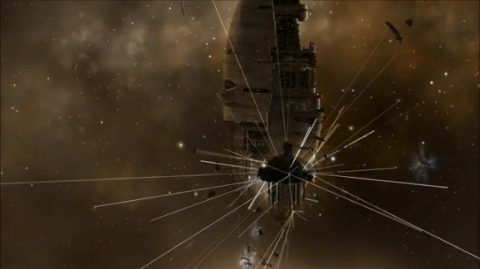When do Hubs Work?
By ahoodedfigure 11 Comments
Doomthief
I've been going back and forth between two games, both on the old XBox we have: Doom (Ultimate Edition and II, both emulated through the Doom 3 collector's edition), and Thief: Deadly Shadows.
Doom's been a breeze, and I'm still finding little things I never noticed before (or at least forgot). It's not a terribly complicated game, but couched in its linear find-the-key design is often some pretty non-linear level exploration that I can't get enough of. We don't really need to do it all scripted or all free-form, fellahs. Plenty of fun in the middle ground, too. I even managed to do the rocket bounce secret level in the third episode without looking up that I needed to do it, which was rewarding. I didn't bother with FAQs at all this time and stopped trying to OCD every little secret and item, which made me enjoy the game more. Now that I beat the first three episodes I might skip straight to Doom II. I tried the fourth bonus episode, and it's a bit too sadistic for my tastes.
Hubris
Most of my thought, though, has been on Thief 3. After listening to the podcasts I linked before that had interviews with former Looking Glass Studios members, I had a desire to play some sort of Thief game. Rather than fiddle with trying to get the older games to work, I figured Thief 3 would at least have a bit of pick-up-and-play value. I remember being a bit disappointed about its design differences from 1 and 2, so the past week or so I decided to start playing Thief 3 to see if those feelings still held, of if it was just a symptom of being too close to the original games.
Turns out, by and large, that while I enjoy some of it, I'm still disappointed in the same changes, both subtle and major (if you want a list, I can give it to you), to the basic design. One aspect that I didn't realize might bother me this time through is the hub. In Thief 3, you're given several missions throughout the game where you go to different locations, but eventually you wind up back in a hub area where you can fence your loot, buy equipment, and perform several mini-tasks. All these things are actually fine, but I think what it winds up doing is making the gameworld feel smaller. With mission-based gameplay, to me, the world feels massive. You may only see a small part of it through the missions, but you can imagine Garrett actually living in a vibrant world. It's sort of the same concept that makes radio compelling, since one's imagination has a better special effects budget than most game companies can manage.
Focusing on the hub puts up the same walls that a mission has everywhere, making his world feel small. Like I said, I like a lot of these teenie distractions, but one of the game worlds I like most is Thief's, where it feels like there's always more mystery and weirdness going on in the edges than any single game could ever address. By cutting into some of that and making it a bit more mundane (and at times repetitive ), I don't get as much of the feeling that I'm getting the highlights in this guy's life, which I think in games with a certain level of atmosphere is sort of the point.
Still enjoying it in a general way, despite the annoyances. I'm also challenging myself, in addition to setting the difficulty to the max like normal, to try to fence as little loot as possible, and to try to survive on what I find. I'm also trying to stay away from blackjacking unless it's absolutely necessary (outside of the prison, where I was feeling a bit vengeful on guards' brain cells).
Question I'm going to ask you this time is, when have hubs worked or not for you in games you've played? You think they have their utility sometimes, or are they just an annoying fad? I will say right off that it depends; I liked the hub in Ultima Underworld II as a sort of refuge from the cooler but more hostile places that you visit once you get past a certain point in the game.
Lemme know how you feel if you wanna, and have a good weekend.


Log in to comment